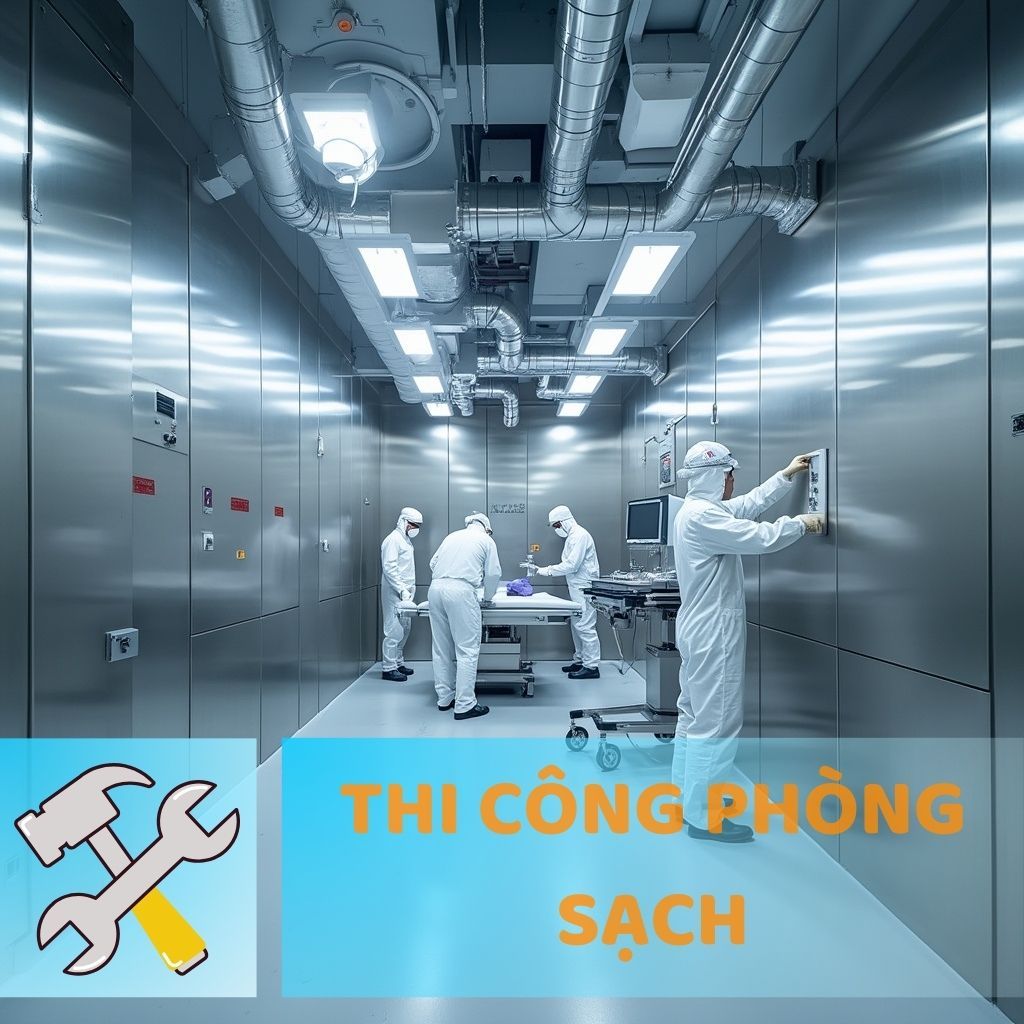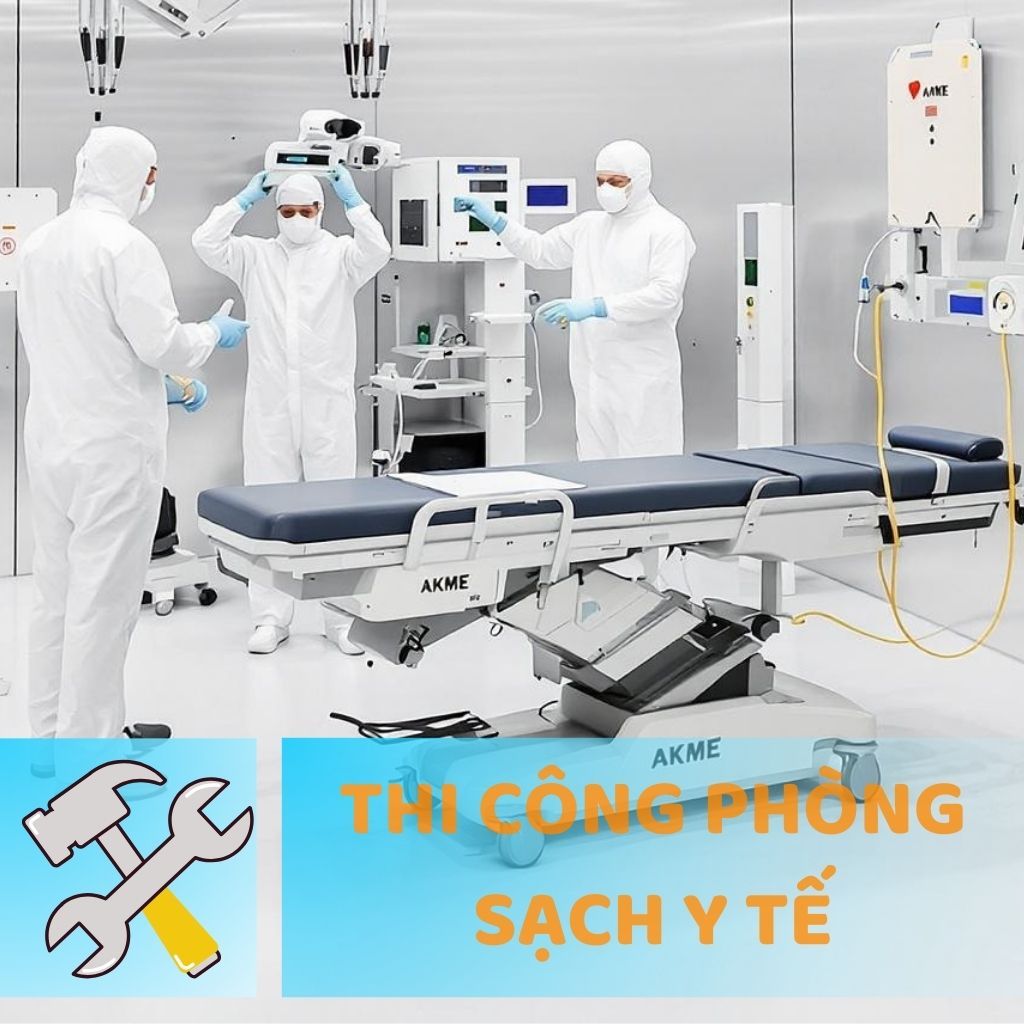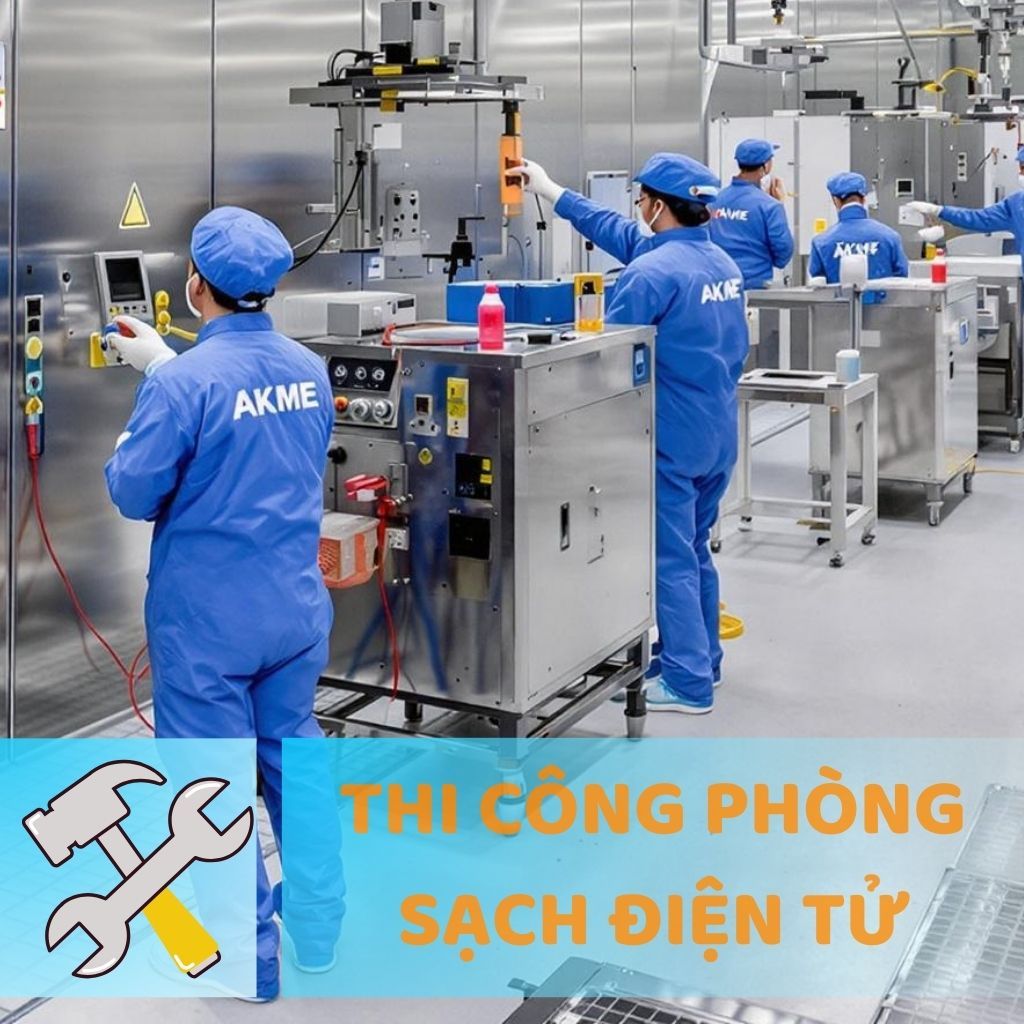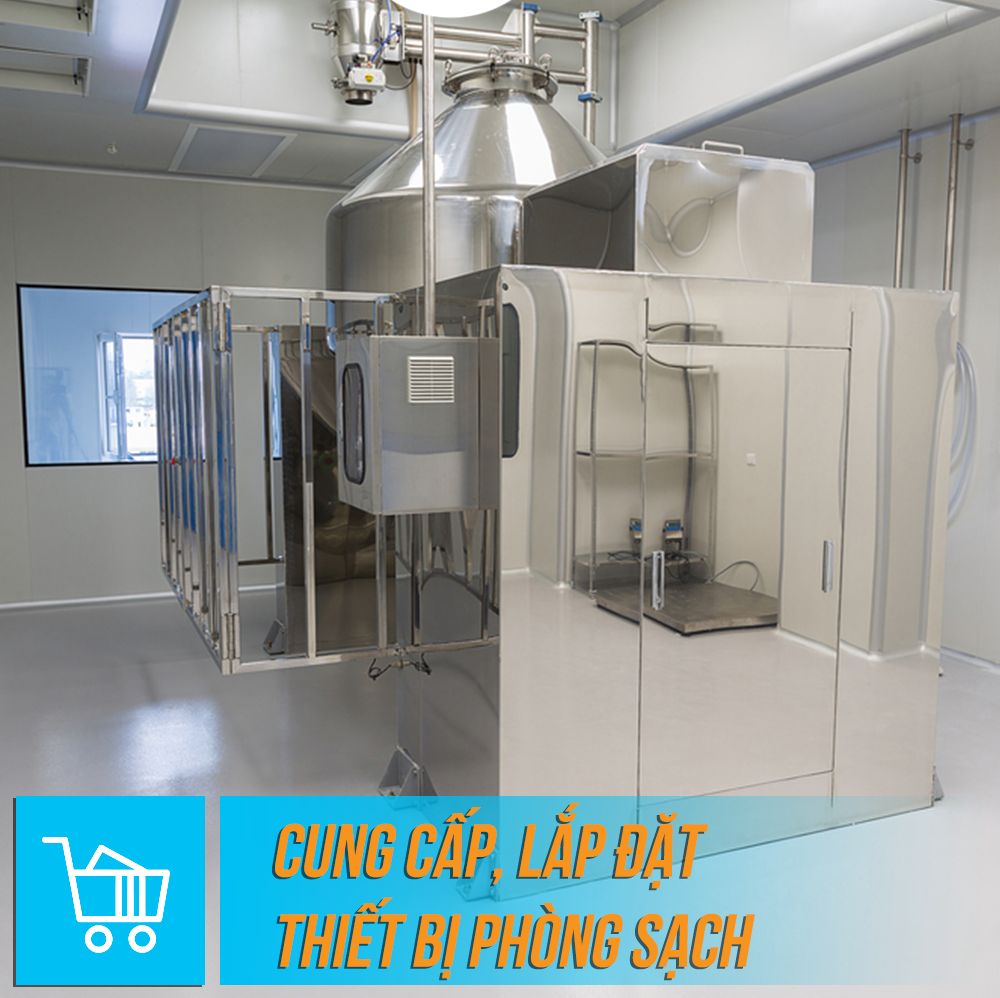The importance of cleanroom lighting
13:25 - 01/04/2025 584
The importance of cleanroom lighting lies in ensuring cleanliness, stable illumination, and compliance with GMP and ISO 14644 standards in industrial production.
BMS system in a clean room
Controlling pressure differentials in cleanrooms.
The importance of cleanroom lighting is often underestimated during the design and operation of cleanroom systems. However, lighting plays a crucial role in maintaining stable environmental conditions, ensuring microbial safety, and operational efficiency. In industries requiring strict control such as pharmaceuticals, medical devices, or electronics, cleanroom lighting systems must meet both technical standards and practical operating requirements.
This article will help you understand why cleanroom LED lighting, lighting standards, and proper installation are so important in maintaining production quality.
What are cleanroom lights and how are they different?
Design features of cleanroom lights
- Dust-sealed design, anti-static
- Smooth surface, easy to clean, minimizes bacterial accumulation
- Uses panel LED lights or recessed cleanroom lights to distribute light evenly

Technical role in environmental control
- Ensures standard illumination in all areas
- Does not generate localized heat, does not disrupt clean airflow
- Suitable for cleanrooms Class 1000 and above
Why is lighting important in a cleanroom?
- Supports microbial control
Clear and uniform lighting helps personnel detect dirt, dust, or equipment damage – particularly important in pharmaceutical production cleanrooms.
- Reduces the risk of operational errors
Proper lighting enables more precise operations, reducing confusion during weighing, sample inspection, or packaging.
- Contributes to meeting GMP certification standards
According to ISO 14644 standards and WHO GMP, lighting systems are a crucial part of evaluating safe production conditions.
- Enhances labor efficiency and visual health
Good lighting helps reduce eye strain, lower error rates, and improve the morale of personnel working in tightly controlled environments.
- Minimizes dust generation from lighting equipment
Standard lights may have a risk of dust dispersion if not designed to be sealed. This directly affects particulate control in a cleanroom environment.
GMP Cleanroom Lighting Standards
Key specifications to note:
- Illuminance: At least 500 Lux in primary work areas, 300 Lux for corridors and auxiliary areas
- Color temperature: From 4000K – 6000K (neutral white to cool white)
- Color Rendering Index (CRI): ≥80 to clearly distinguish product colors and samples
Are there regulations regarding illuminance in cleanrooms?
Yes. Depending on the industry, ISO lighting standards and GMP provide specific requirements. In pharmaceutical cleanrooms, higher illuminance is needed than in storage areas or corridors. Some microbiology labs require up to 1000 Lux.
Comparison between cleanroom lighting and standard lighting
Criteria | Cleanroom | Standard Lighting |
Dust Sealing | Absolutely required | Not required |
Antimicrobial properties | Yes | No |
Impact on airflow | Must be minimal | Not significant |
Maintenance frequency | Low | Medium |
Common types of cleanroom lights today
- Panel LED lights
- Ultra-thin design, recessed installation
- Non-glare, gentle and uniform lighting
- Commonly used in cleanrooms Class 1,000 - 10,000
- Dust-proof lights – sealed lights
- Light casing made of tempered glass or diffused mica
- Prevents dust ingress, minimizes airflow turbulence
- Ideal for packaging areas and anterooms
- Anti-glare lights – wall-mounted cleanroom lights
- Mounted flush with the wall or in hidden corners
- Avoids direct reflection into operators' eyes
- Minimizes operational error
Important considerations when installing lights in a cleanroom
Select the right location and lighting angle
- Install above the primary work area
- Avoid locations that obstruct the airflow of the HVAC system
- Maintain a proper distance to avoid creating thermal hotspots
Use standard-compliant equipment
- Lights must have an IP65 certification or higher, compliant with GMP standard lighting equipment
- Use light diffusing glass or clean light diffusing grids to evenly distribute light
Power supply and special materials
- Dust-proof LED power supply, electromagnetic interference resistant
- Exterior material coated with anti-static layer
- Lifetime >50,000 hours to reduce maintenance costs
 Consequences of using non-compliant lights in a cleanroom
Consequences of using non-compliant lights in a cleanroom
- Increases the risk of dust and bacterial particle generation
- Raises localized heat affecting the airflow layers
- More prone to damage, requiring frequent maintenance that disrupts production
- Creates difficulties in obtaining GMP and ISO certifications
Frequently Asked Questions about Cleanroom Lighting
Why must cleanroom lights comply with ISO standards?
Because lighting affects airflow, microorganisms, and production safety. Non-compliant lights can disrupt the controlled environment.
Should LED lights be used in cleanrooms?
Yes. LEDs do not produce significant heat, are energy efficient, have a long lifespan, and require little maintenance.
Do cleanroom lights affect pressure differentials?
If installed in the wrong location or not sealed, they may affect cleanroom pressure control. It is necessary to choose the correct type of sealed lights.
How to maintain a cleanroom lighting system?
- Perform regular scheduled maintenance
- Clean surfaces with specialized solutions that leave no residue
- Periodically check the sealing and light gaskets
What should be considered in cleanroom lighting design?
- Ensure sufficient lighting without glare
- Avoid creating hotspots
- Do not affect the airflow layers
- Lights should be integrated with the lighting control system (BMS or Timer)
Conclusion
The importance of cleanroom lighting is not only in illumination, but also directly related to cleanliness, microbial control, and production efficiency. Choosing the right type of lights, installation location, and technical standards is crucial for any cleanroom, especially in high-demand industries such as pharmaceuticals or electronics.
If you are designing or upgrading a GMP-compliant cleanroom lighting system, do not overlook this aspect. A high-quality lighting system will help you reduce operating costs, achieve certifications more easily, and ensure long-term efficiency.
 | ANH KHANG CLEANROOM ELECTRICAL JOINT STOCK COMPANY Hotline: 1900 636 814 - 0902 051 222 Email: info@akme.com.vn Website: akme.com.vn Address: Lot B7 - Xuan Phuong Garden - Phuong Canh - Nam Tu Liem - Hanoi. |
12:05 - 28/11/2019 46893
Cleanroom Design and Construction
14:05 - 11/03/2025 18624
GMP and ISO Standard Cleanroom Construction
14:18 - 11/03/2025 11688
ISO Standard Medical Cleanroom Construction
14:13 - 28/02/2025 22510
Electronics Cleanroom Construction
16:15 - 18/03/2021 4129
Warranty Service
16:26 - 28/11/2019 16442
Supply and installation of cleanroom equipment
14:50 - 26/11/2019 5554
Technology Production Line Consulting
16:35 - 19/03/2025 17843














